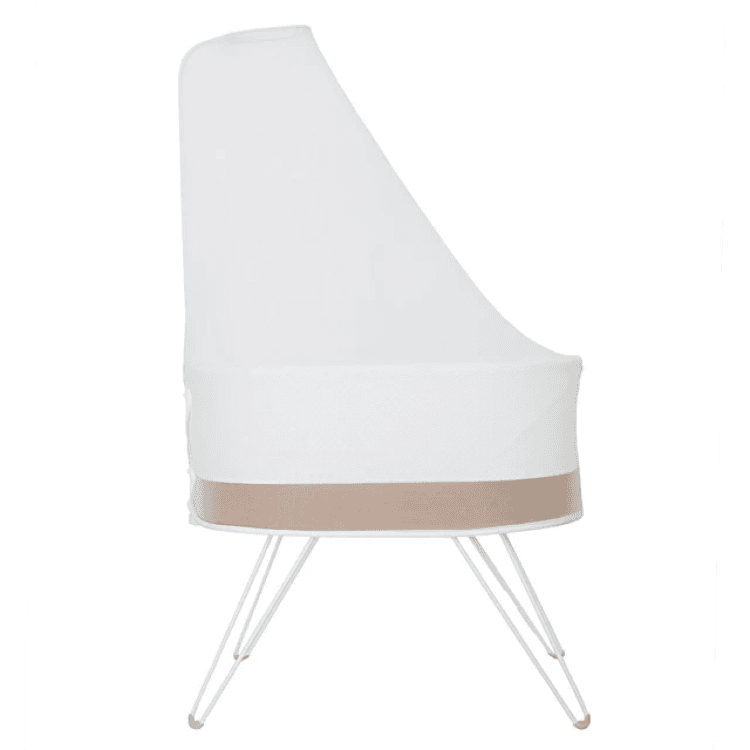BABY
9-Month Sleep Regression: What It Is and How to Handle It
Around 9 months, a baby who previously was a good sleeper may start to wake at night…welcome to the 9-month sleep regression!

Written by
Happiest Baby Staff

What is the 9 month sleep regression?
Even if your baby has long been a fantastic sleeper, you may notice that around 8 to 10 months, they are now awakening several times a night! Your little one might need a middle of the night snuggle and be reluctant to doze back off. These wake ups are known as the 9 month sleep regression (also referred to as the 8 month sleep regression).
What does the 9 month sleep regression look like?
After sleeping well for several months, at 9 months, your baby may begin to have difficulty sleeping through the night. Other signs of 9 month sleep regression include:
- Taking longer to go back to sleep
- Fussiness
- Crankiness
- Trouble going to sleep
Why is my 9 month old waking at night?
Around 9 months, a new swarm of challenges (teething pain, first colds, constipation, new foods, pulling to stand, etc.) can shatter a good night’s sleep. These common disturbances cause many thorny sleep struggles.
Why is my 9 month old baby waking up every 2 hours?
Again, at 9 months, it is completely normal for your baby to go through sleep regressions. If your baby is waking every 2 hours, you may want to first look for any external factors (itchy pyjamas, a bright light shining in the window, cold symptoms, etc) that may be causing wake-ups. Other reasons for frequent wake-ups include...
Developmental milestones and the 9 month sleep regression.
Right now, your baby might be crawling, pulling to stand, or even walking for the first time! There are so many new ways to explore the world…with so many fun things to do and see, it is no wonder your little one is wide eyed!
Teething and the 9 month sleep regression.
Teething is usually just an annoyance. It is easy to ignore during the day, but becomes bothersome when lying in bed at night. And, around 9 months, babies have as many as eight different teeth coming in!
Temperament and the 9 month sleep regression.
A baby’s temperament can lead to wake-ups. Babies with a sensitive temperament might be more, well, sensitive to internal and external disturbances. Likewise, babies who are especially social might enjoy Mum or Dad’s company so much that they awaken at 4 a.m. thinking, “Is it time to play yet?” Find your baby’s temperament here.
Hunger and the 9 month sleep regression.
Could a rumbling tummy be behind your baby’s 9 month sleep regression? During this period in your baby’s life, they are filling up on new foods—but as you introduce solids, make sure you are not skimping on milk. Milk still makes up about 75% of your baby’s calories right now. Make sure your baby is not skipping milk during the day…otherwise, they are going to start popping awake hungry all night long.
How long does the 9 month sleep regression last?
It depends! The 9 month sleep regression could pass after a few days, but it could last for weeks, or possibly months, if it is not addressed.
How much sleep do babies need at 9 months?
At 9 months, babies tend to sleep around 12 to 14 hours in a 24 hour period. This ends up being about 9 to 11 hours of nighttime sleep and 2 to 5 hours of naps.
How do I deal with the 9 month sleep regression?
There are a number of ways for you to deal and prepare for the a 9 month old sleep regression. Here are a few tips:
- Prepare your baby’s room for sleep. Strong sleep cues are a good way to keep sleep regressions at bay.
- Use low, rumbly white noise, which can cover up external disturbances (the sound of a car’s engine outside, for example) and can also help babies forget about internal disturbances (like sore gums). Need a white noise machine? SNOObear plays white noise…and looks adorable in any nursery!
- Make sure the room is dark (even a little bit of light peeking in can cause awakening) and a comfortable temperature.
- Address teething pain. If you think throbbing gums are keeping your child awake, ask your healthcare provider about giving ibuprofen or acetaminophen 30 minutes before bed (it takes a little time to work). And while you are waiting for the medicine to work, let your munchkin chomp on a washcloth whose corner was dipped in apple juice and then frozen.
- Add extra fat to your baby’s diet. In addition to making sure your baby is getting enough breastmilk or formula during the day, you could also try to boost the fat content of evening feeds with a little avocado, or a bit of olive oil or butter mixed into food. This could help your baby feel fuller longer.
- Adjust your bedtime. If you have tried the above tips and your little friend is still waking, it is possible that you have a bedtime scheduling issue. Awakenings can be caused by going to bed too early or late…or having an irregular sleep schedule. (Related: Here is a sample sleep schedule for your baby's first year)
Disclaimer: The information on our site is NOT medical advice for any specific person or condition. It is only meant as general information. If you have any medical questions and concerns about your child or yourself, please contact your health provider. Breastmilk is the best source of nutrition for babies. It is important that, in preparation for and during breastfeeding, mothers eat a healthy, balanced diet. Combined breast- and bottle-feeding in the first weeks of life may reduce the supply of a mother's breastmilk and reversing the decision not to breastfeed is difficult. If you do decide to use infant formula, you should follow instructions carefully.
SHARE THIS ARTICLE
PARENT PICKS
Bestsellers



















